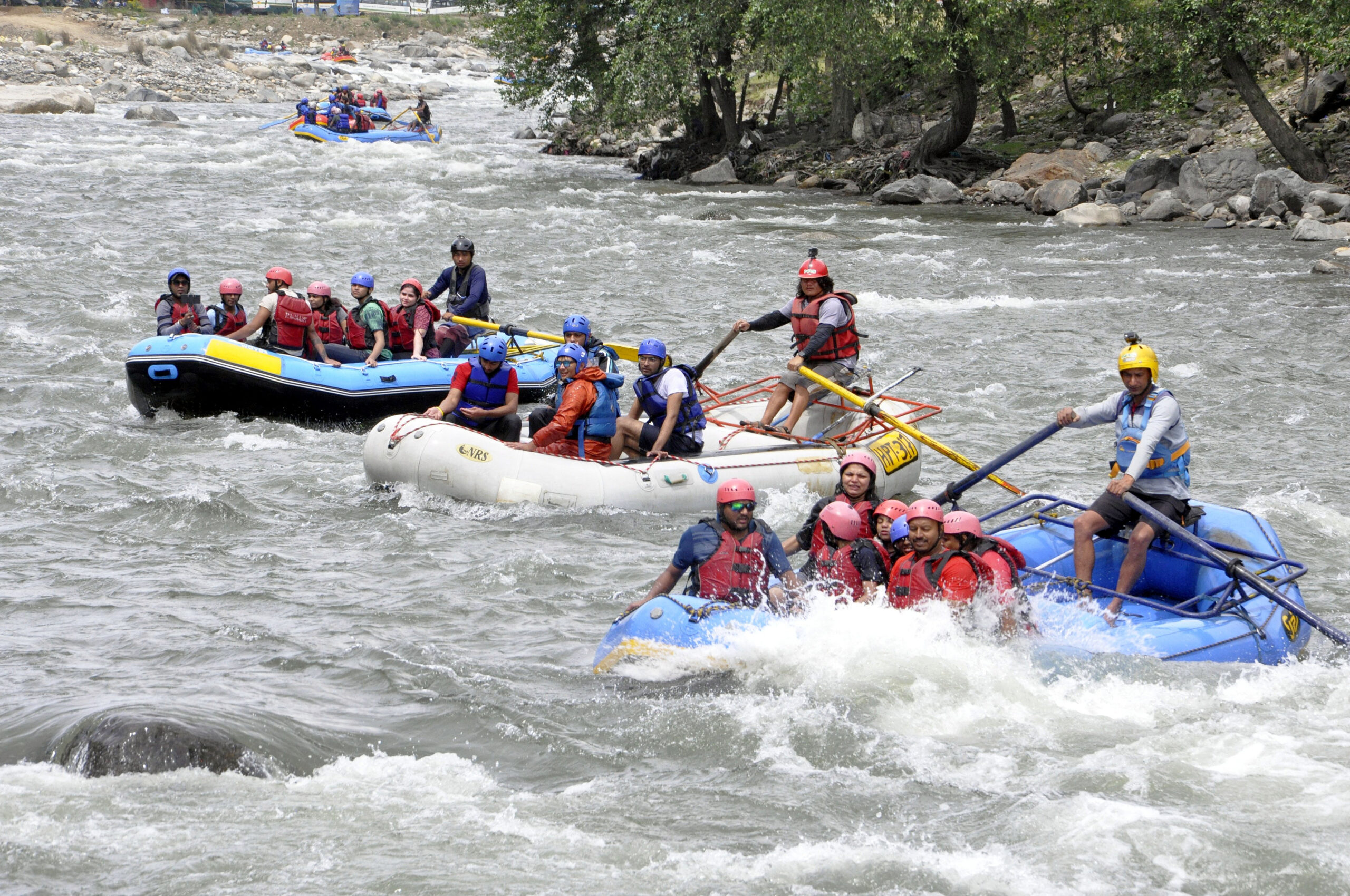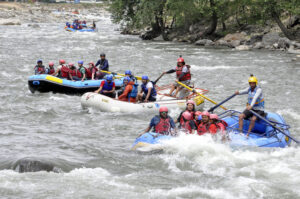Rishikesh, renowned for its spiritual allure and adventurous escapades, recently found itself embroiled in controversy following a disconcerting incident that has cast a shadow over safety measures in this popular destination. A viral video capturing a clash between tourists and rafting guides along the serene banks of the Ganges has brought to the forefront potential risks associated with adventure activities in the area.
Kalesh b/w Tourists who had come for rafting and boatmen clashed. As a result, many people got injured. This video of the fight that took place on the banks of the Ganges has gone viral, Rishikesh UK
pic.twitter.com/jJNxXNMaxd— Ghar Ke Kalesh (@gharkekalesh) June 8, 2024
Related News
While the exact date of the incident remains unconfirmed, its repercussions have reverberated throughout the community, drawing attention from both residents and authorities alike. Rishikesh, a sacred sanctuary revered by visitors worldwide for its spiritual sanctity and adrenaline-pumping exploits, often beckons travelers to delve into its ancient temples, behold the enchanting Ganga aarti ceremony, and partake in thrilling adventures like white-water rafting.
However, the tranquility of these exhilarating pursuits was shattered by the unsettling altercation portrayed in the viral footage. The incident has catalyzed a meticulous scrutiny of safety protocols and regulatory frameworks governing adventure tourism in Rishikesh, amplifying concerns regarding the welfare of both tourists and local guides.
Across various social media platforms, the viral video has elicited a cacophony of reactions, with users vocalizing their apprehensions and advocating for enhanced safety standards in adventure tourism. Authorities are under mounting pressure to address the issue promptly and implement requisite measures to safeguard the well-being and security of visitors to Rishikesh.
As investigations into the incident unfurl, stakeholders within the tourism industry and local governing bodies are urged to foster collaboration in instituting robust safety protocols aimed at forestalling the recurrence of such distressing episodes in the future.













